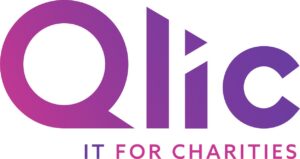As charities increasingly depend on technology to serve their community. As a result, the risk of cyber attacks and data breaches has become a growing concern. However, with limited resources and budget constraints, many charities struggle to invest in cybersecurity measures and increase their cyber resilience. Fortunately, there are various grant schemes available to charities to help them improve their cyber resilience and reduce the risk of falling victim to a cyber attack.
Keep reading as we explore the different grants for cyber security for charities.
What are cyber security grants
During the ever-evolving digital world, charities of all sizes are at an increased risk of cyber security attacks. This is caused by an increased dependence on digital technologies and the amount of sensitive data held. With the help of cyber security grants, your charity can gain access to cyber essentials and perfect its current cyber security processes to protect against cyber attacks.
Cyber security grants are great funding opportunities provided by organisations to help charities protect their digital data against cyber threats. Cyber security grants can cover the cost of implementing cyber security measures, such as software and hardware, security training and even IT support services.
Cyber security grants for charities aim to improve the charities’ cyber resilience by providing the necessary resources to help protect against cyber threats. When receiving the grant, nonprofits can enhance their cyber security environment and prevent financial and reputational damage due to cyber attacks.
The value of cyber security grants
All in all, the value of cyber security grants for charities and nonprofits is invaluable. Cyber security grants provide financial and technical support to organisations that may not have the resources to invest in on their own. Charities can take their cyber security landscape to the next level with the help of a cyber security grant.
Additionally, for charities that operate in regions or communities where cyber threats are higher, these grants can be a lifeline in securing the organisation’s ability to function and provide support to their beneficiaries.
Cyber Security Grants for Charities
There are a range of different grants available for charities and nonprofit organisations. Examples of cyber security grants for charities include:
- Microsoft 365 nonprofit grant
- Tech Trust’s “Be Cyber Secure” Grants
- National Lottery Community Fund
- National Cyber Security Centre (NCSC) Cyber Accelerator
- Cyber Security Small Charities Fund
- Cyber Skills Immediate Impact Fund (CSIIF)
- Local Council Grants

Microsoft 365 nonprofit grant
Microsoft 365 for nonprofits offers grants to eligible charities and nonprofits. This grant can help nonprofits to access Microsoft’s suite of cloud-based productivity tools and services, this includes Word, Excel, PowerPoint, Outlook, and Teams. When it comes to Microsoft charity licensing in the uk, nonprofits can claim free licenses for up to 10 users. Other benefits include ongoing technical support and resources for training.
Additionally, Microsoft 365 nonprofit grants enable charities to collaborate more effectively and efficiently by using Microsoft Teams, which allows team members to work together in real time from any location. Another benefit of this grant is that it helps charities save money on IT infrastructure costs as everything is hosted in the cloud, eliminating the need for on-premises servers. The grant is available worldwide to registered charities and nonprofits that meet Microsoft eligibility criteria, making it easier for organisations to manage their operations and focus on their core mission.
Tech Trust’s “Be Cyber Secure” Grants
Tech Trust’s “Be Cyber Secure” Grants are designed to help charity organisations within the UK enhance their cyber security environment. This grant provides access to cyber security solutions and services such as antivirus software, malware detection, and several protection tools that help charities protect their data from cyber threats.
Also, the “Be Cyber Secure” Grants offer access to web application firewalls, which help charities secure their websites against common cyber attacks such as SQL injections, cross-site scripting, and DDoS attacks.
National Lottery Community Fund
The National Lottery Community Fund is a grant option for charity organisations that distributes their funds to the community that helps improve people’s lives. This fund supports many different projects, including those related to community development, education, environment, health, and much more.
Furthermore, the National Lottery Community Fund recognises the importance of cyber security in today’s digital world. This is why they offer grants to nonprofits to help them improve their cyber security landscape.
National Cyber Security Centre (NCSC) Cyber Accelerator
The National Cyber Security Centre (NCSC) Cyber Accelerator is a program created by the government and provides startup organisations with the opportunity to engage with leading industries and experts to help set-up their cyber security solutions. It aims to support the new development of organisations and their cyber security technology and solutions.
Cyber Security Small Charities Fund
The Cyber Security Small Charities Fund is aimed at smaller charities in England and Wales to help improve their cyber security solutions. The grant is available to support charities an annual income of less than £1 million, focusing on supporting smaller charities that may have limited funds to invest in cyber security measures.
Cyber Skills Immediate Impact Fund (CSIIF)
The UK government has created the Cyber Skills Immediate Impact Fund (CSIIF). Its purpose is to enhance cyber skills in the UK. This fund is aimed towards small to medium organisations.
The CSIIF grant covers up to 100% of training costs for all nonprofit staff looking to develop their cyber security knowledge within the organisation. This grant can be used to cover the costs of training courses, certification, and even examination fees.
Local Council Grants
Local Council Grants is a funding opportunity to support community projects. The grant is carried out by local authorities and can be used to go towards projects aiming to improve the quality of life for local residents. As well as these projects, the grant has a growing emphasis on cyber security awareness and training due to the increasing threat of cyber attacks on local government.
It’s worth noting that this is not a cyber security grant as such. However, the grant can still be used by charities to improve their cyber security

Final Thoughts on Grants for Cyber Security for Charities
In conclusion, charity organisations are becoming increasingly vulnerable to cyber attacks. However, there are a variety of cyber security grants and funding opportunities available to charities to help them strengthen their cybersecurity environment.
These grants allow charities to invest in cyber security. Such as training their staff, risk assessments, and implementing cybersecurity solutions that are fundamental in ensuring their ability to operate safely and securely online. By protecting themselves with these measures, charities can better serve their beneficiaries, maintain trust with donors and supporters, and avoid reputational and financial damage from cyber attacks.
The cyber security grants we listed in this blog post offer a valuable opportunity for charities to access much-needed resources to protect their sensitive data, digital assets and safeguard their beneficiaries. It is crucial for charities and nonprofits to take advantage of these grants in order to improve their cyber resilience to stay ahead of the ever-evolving cyber threats.
Would you like to find out more about how your charity can optimise their cyber security environment? Book your free cyber security consultation below!






